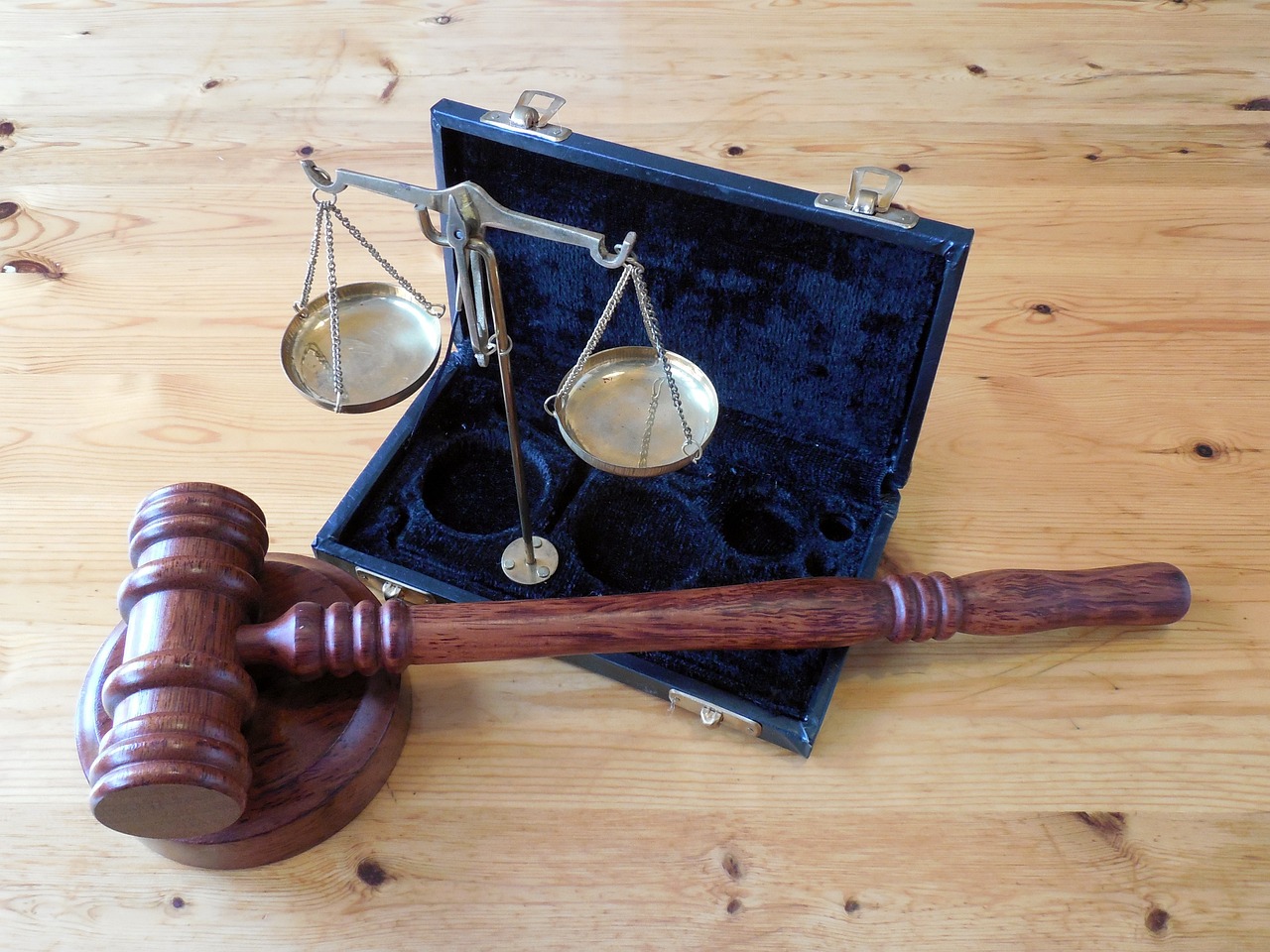Business Lawyer Washington Utah
Are you a business owner in Washington, Utah? If so, it's important to have a trusted legal advisor by your side to navigate the complexities of business law. A business lawyer in Washington, Utah can provide you with the expertise and guidance you need to protect your interests and ensure compliance with all legal requirements.
With their extensive knowledge and experience in business law matters, a skilled attorney can assist you with various aspects of running your small business. They can help you negotiate and draft contracts, ensuring that your agreements are legally sound and favorable to your company. Additionally, they can provide intellectual property protection to safeguard your unique ideas and creations from infringement.
In the event of any disputes or conflicts that arise within your business operations, a business lawyer can help resolve these issues effectively and efficiently. They will work diligently to find practical solutions that minimize disruption to your day-to-day operations while protecting your rights and interests.
Furthermore, an experienced attorney can offer guidance on employment law matters such as hiring practices, employee contracts, workplace policies, and compliance with state and federal regulations. This ensures that you establish fair employment practices while avoiding potential legal pitfalls.
When it comes to operating a business in Washington, Utah, compliance with laws and regulations is essential for success. A knowledgeable business lawyer can provide valuable advice on regulatory matters specific to your industry or niche. They will keep you informed about any changes in laws or regulations that may impact your operations so that you stay ahead of the curve.
Ultimately, having personalized legal support from a skilled attorney who understands the unique challenges faced by small businesses is crucial for long-term success. By partnering with a trusted business lawyer in Washington, Utah, you'll gain peace of mind knowing that someone is looking out for your best interests every step of the way.
Key Takeaways
- Business owners in Washington, Utah need a business lawyer to navigate business law complexities and ensure legal compliance and protection of interests.
- Business lawyers in Washington, Utah offer expertise in contract negotiation and drafting, intellectual property protection, resolving disputes, and employment law matters.
- Personalized legal support from a skilled attorney is crucial for small business success and protection against potential issues.
- Business lawyers in Washington, Utah understand the intricacies of local laws, anticipate and address potential issues proactively, and stay up-to-date with the latest developments in business law.
Small Business Legal Services in Washington, Utah
Are you ready to protect your small business in Washington, Utah with expert legal services that will keep you one step ahead of any potential issues? As a small business owner, it is crucial to have the right legal guidance to navigate through the complexities of running a business. That's where a business lawyer in Washington, Utah can be your greatest asset. With their knowledge and experience in small business legal services, they can provide you with the support and protection you need.
In Washington, Utah, there are specific laws and regulations that apply to small businesses. From setting up your business structure to drafting contracts and agreements, a business lawyer understands the intricacies of these legal requirements. They can ensure that all your paperwork is in order and compliant with local laws so that you can focus on growing your enterprise.
Moreover, having a business lawyer by your side means having someone who can anticipate potential issues before they arise. They are well-versed in risk management strategies and can help you identify any possible vulnerabilities in your operations or contracts. By addressing these matters proactively, you can avoid costly disputes or lawsuits down the line.
With expertise in business law matters unique to Washington, Utah, a professional attorney will be able to guide you through various aspects of running a successful venture. From employment law considerations to intellectual property protection or even resolving disputes through negotiation or litigation when necessary – they have got you covered.

By investing in small business legal services from an experienced lawyer in Washington, Utah, you are taking proactive steps towards safeguarding your enterprise's future success. Don't wait until problems arise; consult with a knowledgeable attorney today and gain peace of mind knowing that all legal aspects of your business are handled professionally. Transitioning into the subsequent section about 'expertise in business law matters,' let's explore how their specialized knowledge can benefit your organization without missing any important steps along the way , ensuring compliance with regulations and minimizing legal risks. Their expertise can also help in negotiating contracts, resolving disputes, and protecting your intellectual property rights. By having a business lawyer on your side, you can focus on growing your organization and have peace of mind knowing that you are operating within the boundaries of the law.
Expertise in Business Law Matters
With extensive knowledge and experience in the field, our attorney is well-versed in handling a wide range of legal matters pertaining to businesses. As a business lawyer based in Washington, Utah, our attorney has developed expertise in various areas of business law. Whether you need assistance with contract negotiation, intellectual property protection, or employment law issues, our attorney can provide you with reliable legal counsel.
When it comes to business law matters, our attorney has a deep understanding of the complexities involved. With their expertise, they can help guide you through the legal landscape and ensure that your business operates within the boundaries of the law. They are skilled at analyzing contracts and agreements to ensure they meet all necessary legal requirements.
In addition to their comprehensive knowledge of business law, our attorney excels at providing personalized attention to their clients. They take the time to understand your specific needs and goals before crafting tailored solutions for your business. Their strong communication skills allow them to effectively negotiate on your behalf and represent your best interests.
Furthermore, our attorney stays up-to-date with the latest developments in business law by attending seminars and staying active within professional networks. This commitment to continuing education ensures that they are always equipped with the most current legal strategies and insights for addressing your unique business challenges.
Transitioning into the subsequent section about 'contract negotiation and drafting', our attorney's expertise extends beyond general business law matters. They have particular skill when it comes to contract negotiation and drafting as well. By leveraging their knowledge of both local Washington laws and broader national regulations, they can assist you in creating solid contracts that protect your rights while also promoting positive working relationships with other parties involved.
NEXT SUBTOPIC: 'Contract Negotiation and Drafting'
Contract Negotiation and Drafting
Get ready to experience the expertise of our business lawyer in Washington, Utah as they guide you through the intricate world of contract negotiation and drafting. Our attorney will be by your side every step of the way, helping you create solid agreements that protect your interests and foster positive relationships with other parties involved. Whether you are a small business owner or part of a large corporation, having well-drafted contracts is essential for conducting smooth business transactions.
When it comes to contract negotiation, our lawyer understands the importance of finding common ground with the other party while still advocating for your best interests. They will carefully analyze all terms and conditions, ensuring that no loopholes or ambiguities exist that could potentially lead to disputes down the line. With their extensive knowledge and experience in business law matters, they will skillfully negotiate on your behalf, striving to achieve mutually beneficial outcomes.
In addition to negotiation, our attorney excels at contract drafting. They have a keen eye for detail and will meticulously craft agreements that address all necessary components. From payment terms to delivery schedules, our lawyer ensures that every aspect is clearly outlined in order to prevent any misunderstandings or disagreements between parties. By utilizing their expertise in contract law, they can help you create legally binding documents that protect your rights and minimize potential risks.
As we move forward in this process of contract negotiation and drafting, it's important to remember that intellectual property protection is another crucial aspect of conducting business successfully. Without proper safeguards in place, your innovative ideas and creations may be vulnerable to infringement or theft by others. Stay tuned as we delve into how our business lawyer can assist you in safeguarding your intellectual property rights.
Intellectual Property Protection
Discover how our experienced attorney can help you safeguard your innovative ideas and creations through effective intellectual property protection. As a business owner in Washington, Utah, it is crucial to understand the importance of protecting your intellectual property. By working with our team of skilled lawyers, we can ensure that your valuable assets are legally protected from infringement and misuse.
When it comes to intellectual property protection, our law firm has extensive knowledge and experience in this complex area of law. We understand the intricacies involved in obtaining patents, trademarks, and copyrights for your inventions, designs, logos, and creative works. Our attorneys will guide you through the entire process, ensuring that all necessary documentation is properly filed and deadlines are met.
With our legal representation by your side, you can rest assured that your intellectual property rights will be vigorously defended. In case of any infringement or unauthorized use of your creations or ideas, we will take swift action to protect your interests. Our lawyers have a proven track record of successfully resolving disputes related to intellectual property infringement and negotiating favorable settlements on behalf of our clients.
Transitioning into the next section about resolving business disputes without using 'step': In addition to providing comprehensive intellectual property protection services, we also specialize in resolving business disputes. Whether it's contractual disagreements or conflicts over ownership rights or licensing agreements relating to intellectual property issues, our attorneys have the expertise to navigate these matters effectively on your behalf.
Resolving Business Disputes
Navigating the choppy waters of business disputes can be as challenging as finding a needle in a haystack, but our skilled attorneys are here to guide you towards a favorable resolution. When it comes to resolving business disputes, having a reliable and experienced business lawyer by your side is crucial. Our team of legal experts in Washington, Utah understands the intricacies of litigation and will work tirelessly to protect your interests.
To make the process more enjoyable for you, we offer personalized attention and support throughout every step of the way. We believe in open communication and will keep you informed about the progress of your case. Our attorneys will listen attentively to your concerns, thoroughly analyze the situation, and provide strategic advice tailored to your specific needs.
In addition, we take pride in our ability to negotiate on your behalf. With extensive experience in alternative dispute resolution methods such as mediation and arbitration, we strive to find creative solutions that avoid lengthy court battles. Our goal is always to reach a fair settlement that protects your rights and minimizes any potential financial or reputational damage.
Furthermore, our expertise extends beyond traditional litigation. We understand that not all disputes need to end up in court, and we explore all available options before recommending litigation. Whether it's negotiating contracts, drafting settlement agreements, or pursuing other forms of dispute resolution, we are committed to achieving the best possible outcome for you.
Transition: As important as resolving business disputes is addressing employment law matters with equal diligence.
Employment Law Guidance
Now that we've discussed resolving business disputes, let's move on to another important area where a business lawyer can provide valuable guidance: employment law. Employment law encompasses the legal rights and responsibilities of employers and employees in the workplace. As a business owner in Washington, Utah, it is crucial to understand and comply with these laws to ensure a fair and harmonious work environment. A knowledgeable business lawyer can help you navigate through the complexities of employment law and provide vital guidance on various matters.
When it comes to employment law, there are numerous areas that require careful attention. From hiring practices to termination procedures, each step must be handled in accordance with relevant laws and regulations. An experienced business lawyer in Washington, Utah can assist you in drafting employment contracts, ensuring compliance with anti-discrimination laws, developing workplace policies, and addressing issues such as harassment or wage disputes. By seeking their expert guidance, you can minimize legal risks while promoting a productive work environment for your employees.
To illustrate the breadth of expertise provided by a business lawyer specializing in employment law in Washington, Utah, consider the following table:
| Legal Services |
Description |
| Drafting Employment Contracts |
Assisting with creating clear and comprehensive contracts that protect both your company and employees |
| Ensuring Compliance with Anti-Discrimination Laws |
Providing guidance on preventing discrimination based on protected characteristics |
| Developing Workplace Policies |
Creating policies that align with legal requirements and address issues like attendance or dress code |
| Resolving Employee Disputes |
Assisting in resolving conflicts between employers and employees through negotiation or mediation |
By consulting with a skilled business lawyer who specializes in employment law matters, you can gain peace of mind knowing that your company is adhering to all applicable regulations while maintaining positive relationships with your workforce. Now that we have explored how an attorney can assist you with employment law matters let's delve into another critical area: compliance and regulatory advice.
Compliance and Regulatory Advice
With the expertise of a skilled business lawyer specializing in employment law, you can ensure your company adheres to all regulations and maintains positive relationships with your workforce, providing peace of mind. Compliance with employment laws is crucial for businesses of all sizes, as violations can result in costly lawsuits and damage to your reputation. By seeking regulatory advice from a reputable law firm in Washington, Utah, you can stay up-to-date on ever-changing laws and regulations that govern the employer-employee relationship.
Having an experienced attorney by your side will help you navigate through complex compliance requirements. They will work closely with you to review your current policies and procedures to ensure they align with legal standards. With their deep understanding of employment laws specific to Washington and Utah, these attorneys will provide tailored guidance that meets the unique needs of your business. From ensuring proper classification of employees to implementing effective anti-discrimination practices, they will help you mitigate any potential risks.
When it comes to compliance and regulatory advice, it's important to have a proactive approach rather than waiting for issues to arise. Regular consultations with a business lawyer specializing in employment law will allow you to identify areas where improvements are needed before problems occur. These attorneys will assist you in conducting internal audits and creating comprehensive employee handbooks that outline company policies clearly. By taking preventative measures guided by their expert advice, you can minimize legal disputes and maintain a harmonious work environment.
In addition to offering compliance guidance, skilled business lawyers also provide personalized legal support for small businesses like yours. Transitioning smoothly into this next section about personalized legal support for small businesses without using the word 'step,' these attorneys understand the unique challenges faced by small companies and offer cost-effective solutions tailored specifically for them. Whether it's drafting contracts or resolving disputes through negotiation or litigation, they are dedicated to protecting the best interests of your business while fostering growth opportunities.
Personalized Legal Support for Small Businesses
For small businesses, having personalized legal support is like having a trusted advisor who can guide them through legal complexities and help them thrive. A business lawyer specializing in providing personalized legal support for small businesses in Washington, Utah can be an invaluable asset to ensure your company's success. With their expertise and knowledge of the local laws and regulations, they can provide you with tailored advice and solutions that are specific to your business needs.
Here are three ways in which personalized legal support can greatly benefit small businesses:
-
Peace of mind: Running a small business comes with numerous challenges, including navigating through complex legal requirements. Having a dedicated lawyer by your side ensures that you have someone who understands the intricacies of the law and can assist you in making informed decisions. This peace of mind allows you to focus on growing your business without constantly worrying about compliance issues or potential legal pitfalls.
-
Risk mitigation: Small businesses often face unique risks that require careful attention to detail when it comes to legal matters. From drafting contracts to protecting intellectual property rights, a business lawyer can help identify potential risks and develop strategies to mitigate them effectively. By addressing these issues proactively, you minimize the chances of costly disputes or lawsuits down the road.
-
Customized guidance: Every small business is different, with its own set of goals, challenges, and industry-specific regulations. A lawyer specializing in personalized legal support will take the time to understand your specific circumstances and provide customized guidance accordingly. This tailored approach ensures that you receive advice that aligns with your business objectives while staying compliant with relevant laws.
By enlisting the services of a knowledgeable lawyer who offers personalized legal support for small businesses in Washington, Utah, you gain access to expert advice specifically designed for your company's success. Their expertise provides peace of mind by alleviating concerns about compliance issues and minimizing risks through proactive strategies. Moreover, their tailored guidance ensures that every decision you make is well-informed and legally sound. Don't let legal complexities hinder your small business's growth; invest in personalized legal support to navigate the path to success with confidence.
Frequently Asked Questions
What are the common legal challenges faced by small businesses in Washington, Utah?
The common legal challenges faced by small businesses in Washington, Utah include employment law compliance, contract disputes, intellectual property protection, and regulatory compliance. It is crucial to consult with a business lawyer to navigate these challenges effectively.
How can a business lawyer assist in protecting a small business's intellectual property?
A business lawyer can assist you in protecting your small business's intellectual property by conducting thorough research, filing for patents or trademarks, drafting contracts to protect trade secrets, and providing guidance on licensing agreements and infringement issues.
What are the potential consequences of not having proper employment law guidance for a small business?
Not having proper employment law guidance for a small business can lead to potential consequences such as costly lawsuits, fines, damaged reputation, and loss of productivity. It is crucial to seek legal advice to avoid these pitfalls.
How can a business lawyer help in resolving disputes between partners or shareholders of a small business?
A business lawyer can help resolve disputes between partners or shareholders of a small business by providing legal advice, negotiating settlements, drafting agreements, and representing their client's interests in court if necessary.
What are some examples of compliance and regulatory issues that small businesses in Washington, Utah may need assistance with?
Some examples of compliance and regulatory issues that small businesses in Washington, Utah may need assistance with include licensing requirements, tax obligations, employment laws, environmental regulations, and consumer protection laws. A business lawyer can help navigate these complex legal matters.
Conclusion
In conclusion, when it comes to navigating the legal landscape of Washington, Utah for your small business needs, you can rely on our team of expert business lawyers. With our extensive expertise in business law matters, we will guide you through contract negotiation and drafting with ease and precision. We understand that intellectual property protection is crucial for the success of your business, and we will work diligently to safeguard your ideas and innovations.
Moreover, if you encounter any disputes along the way, rest assured that we will be there to resolve them efficiently and effectively. Our employment law guidance ensures that you stay compliant with regulations while fostering a harmonious work environment. Additionally, our compliance and regulatory advice will help you navigate the complex world of laws and regulations that affect your industry.
At our firm, we pride ourselves on providing personalized legal support tailored specifically to the needs of small businesses like yours. We understand that every business is unique and requires individual attention. Therefore, we strive to provide professional yet detail-oriented assistance at every step of your journey.
In summary, with our team by your side as trusted advisors and advocates for your small business in Washington, Utah, you can focus on what truly matters – growing your enterprise and achieving success. Let us handle the legal intricacies so that you can thrive in a competitive marketplace with peace of mind. Contact us today for comprehensive legal services designed specifically for small businesses like yours!
Areas We Serve
We serve individuals and businesses in the following locations:
Salt Lake City Utah
West Valley City Utah
Provo Utah
West Jordan Utah
Orem Utah
Sandy Utah
Ogden Utah
St. George Utah
Layton Utah
South Jordan Utah
Lehi Utah
Millcreek Utah
Taylorsville Utah
Logan Utah
Murray Utah
Draper Utah
Bountiful Utah
Riverton Utah
Herriman Utah
Spanish Fork Utah
Roy Utah
Pleasant Grove Utah
Kearns Utah
Tooele Utah
Cottonwood Heights Utah
Midvale Utah
Springville Utah
Eagle Mountain Utah
Cedar City Utah
Kaysville Utah
Clearfield Utah
Holladay Utah
American Fork Utah
Syracuse Utah
Saratoga Springs Utah
Magna Utah
Washington Utah
South Salt Lake Utah
Farmington Utah
Clinton Utah
North Salt Lake Utah
Payson Utah
North Ogden Utah
Brigham City Utah
Highland Utah
Centerville Utah
Hurricane Utah
South Ogden Utah
Heber Utah
West Haven Utah
Bluffdale Utah
Santaquin Utah
Smithfield Utah
Woods Cross Utah
Grantsville Utah
Lindon Utah
North Logan Utah
West Point Utah
Vernal Utah
Alpine Utah
Cedar Hills Utah
Pleasant View Utah
Mapleton Utah
Stansbury Par Utah
Washington Terrace Utah
Riverdale Utah
Hooper Utah
Tremonton Utah
Ivins Utah
Park City Utah
Price Utah
Hyrum Utah
Summit Park Utah
Salem Utah
Richfield Utah
Santa Clara Utah
Providence Utah
South Weber Utah
Vineyard Utah
Ephraim Utah
Roosevelt Utah
Farr West Utah
Plain City Utah
Nibley Utah
Enoch Utah
Harrisville Utah
Snyderville Utah
Fruit Heights Utah
Nephi Utah
White City Utah
West Bountiful Utah
Sunset Utah
Moab Utah
Midway Utah
Perry Utah
Kanab Utah
Hyde Park Utah
Silver Summit Utah
La Verkin Utah
Morgan Utah
Business Lawyer Washington Utah Consultation
When you need help from a Business Lawyer near Washington Utah, call Jeremy D. Eveland, MBA, JD (801) 613-1472 for a consultation.
Jeremy Eveland
17 North State Street
Lindon UT 84042
(801) 613-1472
Home
Related Posts
Business Lawyer Pleasant Grove Utah
Utah Wholesale Business Law
Business Lawyer Kearns Utah
How to Form an LLC in Utah
Business Lawyer Tooele Utah
How to Calculate Overtime Pay in Utah
Business Lawyer Cottonwood Heights Utah
Understanding Utah’s Consumer Protection Laws
Business Lawyer Midvale Utah
Comprehensive Guide To Hiring A Business Lawyer
Business Lawyer Springville Utah
Mergers and Acquisitions from a Legal Perspective
Business Lawyer Eagle Mountain Utah
Understanding Anti-Trust Laws in Utah
Business Lawyer Cedar City Utah
Understanding LLC Laws in Utah
Business Lawyer Kaysville Utah
Understanding Utah’s Non-Profit Laws
Business Lawyer Clearfield Utah
Telemarketing Lawyer
Business Lawyer Holladay Utah
Business Organizations
Business Lawyer American Fork Utah
Business Law Attorney
Business Lawyer Syracuse Utah
How To Handle Customer Complaints In Utah
Business Lawyer Saratoga Springs Utah
The Role of Business Law in Protecting Minority Shareholder Rights
Business Lawyer Magna Utah
What Are The 4 Different Types of Business Law?
Business Lawyer Washington Utah
[geocentric_weather id=”112409ec-c50b-42e9-a118-d64b121a377b”]
[geocentric_about id=”112409ec-c50b-42e9-a118-d64b121a377b”]
[geocentric_neighborhoods id=”112409ec-c50b-42e9-a118-d64b121a377b”]
[geocentric_thingstodo id=”112409ec-c50b-42e9-a118-d64b121a377b”]
[geocentric_busstops id=”112409ec-c50b-42e9-a118-d64b121a377b”]
[geocentric_mapembed id=”112409ec-c50b-42e9-a118-d64b121a377b”]
[geocentric_drivingdirections id=”112409ec-c50b-42e9-a118-d64b121a377b”]
[geocentric_reviews id=”112409ec-c50b-42e9-a118-d64b121a377b”]






























